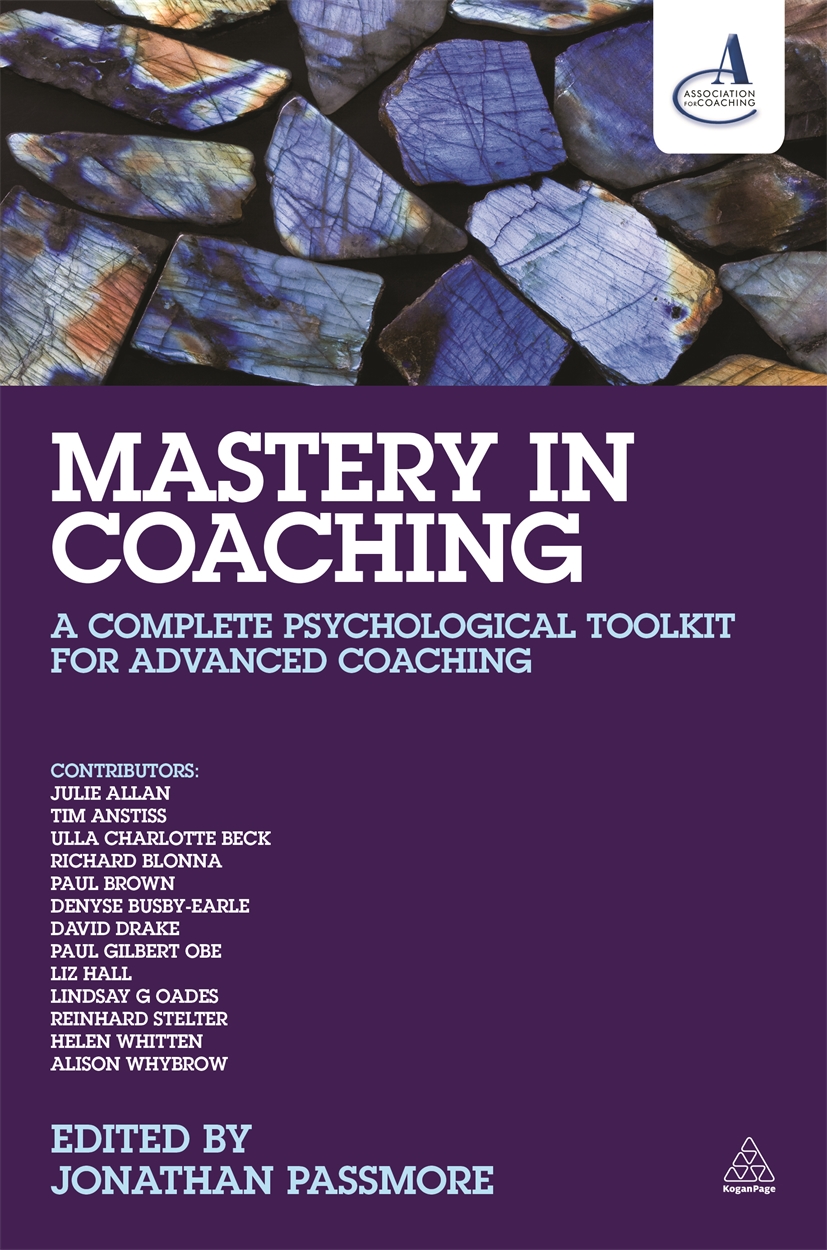Jonathan Passmore on Mastery in Coaching

Jonathan Passmore shares his thoughts on his latest publication, Mastery in Coaching; what mastery means to him, what it means to the coaching industry and what distinguishes a Master Coach from the rest
 1. Can you give us a taster of what to expect in this new publication?
1. Can you give us a taster of what to expect in this new publication?
The previous five co-published books with the Association for Coaching, starting with Excellence in Coaching, were aimed at coach practitioners. They started more generic and moved into detailed areas of coaching practice from diversity to psychometrics to leadership to coaching supervision.
For the sixth book we wanted to do something different, to reflect how the coaching market has matured over the past decade. The book focuses on advanced practice. We asked contributors to write longer chapters, supported by more evidence and references to help readers who want to dig even deeper. The assumption is that everyone will find a number of chapters in the book that will add to their practice and knowledge, even individuals who operate in specialist area (e.g. positive psychology or cognitive behavioral coaching). The chapters while supported by research, are practical, and are aimed at helping coaches to both deepen their knowledge as well as broaden their practice. By covering some new areas that have never been covered before we also hope to offer something new.
2. What did you learn whilst creating and compiling this book?
One area that I know is a fast growing area of practice outside of coaching is Acceptance and Commitment coaching. While I explore values and draw on humanistic approaches in my coaching, acceptance and commitment coaching is an exciting new addition to the field. This is a ground-breaking chapter, as nobody has written about this topic before and from my perspective of learning, there were some fresh insights into this area of practice.
3. This book is aimed at that top 25%. Alongside the skills and techniques that advanced practitioners need to have to become a Master Coach, what other qualities or attributes, in your opinion, does a Master Coach need?
Individuals can be Master Coaches in their own ways. As an analogy it’s like a ‘Master Chef’: Some chefs get their Michelin stars with a traditional French Classical approach, others might be cooking Indian or South East Asian cuisine. These chefs can still be Masters, and are recognised by Michelin as being outstanding chefs, but their approach is very different. What they might have in common would be a number of elements. One of the things that I think differentiates the competent Coach from a Master Coach is the ability to hold together an empathetic, non-judgmental, warm and supportive style of relating, whilst simultaneously being able to bring in a high level of challenge. To hold the coachee supportively in a place of discomfort, in a place of learning. To ask the questions that help the coachee to gain fresh insight about themselves and their situation.
A second area of differentiation is the ability of a Master Coach to be able to move between a variety of different methodologies – e.g. positive psychology, humanistic, cognitive behavioural, motivational interviewing – and use those in an integrated way, which can meet the specific client, and the presenting issues of the client. This requires the Master Coach to have a sophisticated knowledge of a number of different approaches, the techniques within them and be able to blend them together in a way that is harmonious and which feels natural. So the methodologies are outside of the client’s awareness but the impact of those enable the client to gain insight and to move forward.
The third thing about the difference between a competent and a Master Coach is the organisational understanding that the Executive Master Coach has when compared to a competent Coach. A competent Coach should understand elements of what makes up an organisation. They are likely to understand the economic climate of the market of the organisation and have a good understanding of the business or sector. This helps them frame questions and manage the direction of the conversation to ensure it benefits both the individual and the organisation. However the Master Coach will also have a good appreciation of the distinctive challenges that Senior Executives in multi-national organisations face. This is significantly different from the challenges of a manager in a SME or even a typical public sector body.
4. What are your thoughts on the growing international dimension of coaching and what will international collaboration bring to Mastery?
I think it enables individual countries to start thinking about processes of accreditation; it encourage countries that haven’t yet had robust coach training to start to put robust coach training into place – by that I mean qualifications based, post-graduate based, coach training. Thirdly, I think that it enables the opportunity for different individuals to come together to talk about research and how that research links back to coach practice. At the centre of mastery is the scientific understanding of coaching – based on research evidence of what works and why. My hope is that we will see increasing collaboration over the coming decade as both trade bodies deepen their relationships and universities undertaking coaching research collaborate on joint research and cross-border qualifications.
You can save 20% and get free postage in the UK on Mastery in Coaching until the end of November 2014. Use the code MCB20when prompted at the Kogan Page checkout.
This is an edited article. This article originally appeared on the Association for Coaching.


